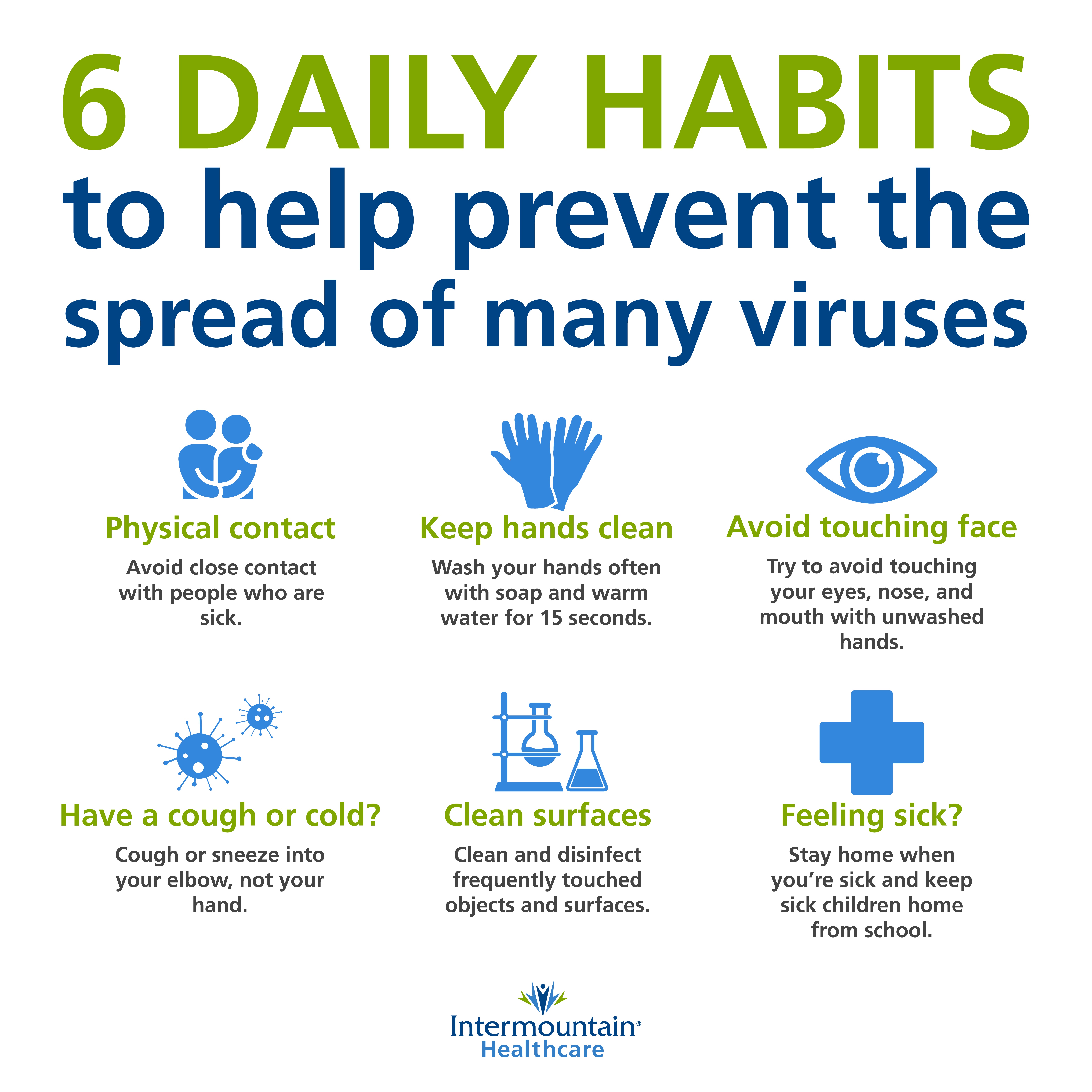6 daily habits to help you avoid getting sick
6 daily habits to help you avoid getting sick
By Unknown
Updated
5 minute read
An ounce of prevention is worth a pound of cure — and that’s never been more true when you consider steps you can take to prevent the spread of illness versus the cost of not being able to go to work or school if you’re sick. The Centers for Disease Control and Prevention (CDC) recommend six daily habits that can help you avoid sickness and prevent the spread of viruses to others too.
Wash your hands
Wash your hands frequently with soap and warm water. Even if your hands don’t look or feel dirty, washing them frequently for at least 20 seconds helps remove any germs or viruses you may have been exposed to during the day. Remember to wash:
- Before eating
- After using the bathroom
- Before touching your eyes, nose, or mouth
- After blowing your nose or sneezing
- When you touch objects and surfaces near where someone has been ill
- Before holding a baby
- Before and after changing wound dressings or bandages
- When your hands look or feel dirty
If you don’t have access to soap and water, use an alcohol-based hand sanitizer that contains at least 60 percent alcohol.
Avoid close contact with people who are sick
It happens in families all the time – one person gets sick and the rest go down one by one until the whole family has been under the weather for two weeks. You can avoid the spread of illness by limiting contact with a sick person.
- Designate a room in your house where the sick person can recover and limit family interactions. If possible, designate a separate bathroom for the sick person to use.
- Consider alternative ways to communicate, like using FaceTime while the person recovers.
- Disinfect frequently touched objects and surfaces (see below).
- Put distance between yourself and others. Practice social distancing by staying home as much as you can and stay at least 3 to 6 feet away from other people.
It can be a tall order to avoid snuggles with a sick child and it’s certainly appropriate to comfort your child, but remember to wash your hands before and after each interaction to reduce your chance of spreading the illness.
Stay home if you're sick
If you’re sick, stay home and keep sick children home from school or daycare except to receive medical care. Don’t go to work or public areas and avoid using public transportation, ride sharing, or taxis. If you don’t feel well and are wondering if you need to see a doctor, call Health Answers at 844-442-5224 to speak with an Intermountain nurse. Health Answers is available 24/7. Also consider using Intermountain’s Connect Care service, available 24 hours a day, on your smartphone, tablet, or computer to connect with an Intermountain clinician and receive specific care recommendations. If you’re referred to a medical facility, remember to call ahead and let them know your symptoms before you go in.
Cover your cough or sneeze
Avoid touching your face
Clean and disinfect frequently touched objects and surfaces
Viruses can live on the surfaces we touch and use regularly. Clean and disinfect frequently touched objects and surfaces everyday like cell phones, tablets, computers, tables, countertops, light switches, doorknobs, and cabinet handles. If someone is sick in your household, you should clean and disinfect multiple times a day to prevent the spread of viruses.
